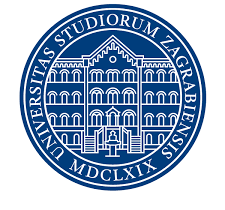Projekt IRCiS
Znanstveni radovi
Is Intergroup Contact Desired by Migrants? The Case of Unaccompanied Minors in Switzerland
Intergroup contact has been shown to reduce prejudice and promote positive relationships between members of different groups, as in the case of the integration of migrants. Nevertheless, extant research has not explored the crucial question of whether members of the migrant group express a desire for contact with the host group. To explore this question, we collected and collated a rare set of data to create a substantial corpus of semi-structured interviews conducted with a specific migrant group, namely unaccompanied minors (UAMs) residing in Switzerland (N = 49). Qualitative analysis revealed UAMs’ strong desire for intergroup contact. We identified four reasons for this desire for contact: bonding, support, knowledge and identity enhancement; and five barriers to contact: language, intercultural differences, network impermeability, mismatch and individual characteristics. These dimensions are discussed as avenues that may help facilitate the emergence of intergroup contact, contact whose positive potential is known.
Fasel, R., Rey, S., Burkhart, A., Jelic, M., Čorkalo Biruški, D., Stanković, N., Vrdoljak, A., Decollogny, S., Domingues-Mendonça, A., Faivre, A., Jobin, B., Petit, F., Romerio, M., Rothenbuehler, G., Russo, L.-A., Valle, A., Teklu, Y., Burger, K., Csupor, I., Darbellay, F., Konan, N. P. i Butera, F. (2025). Is Intergroup Contact Desired by Migrants? The Case of Unaccompanied Minors in Switzerland. Journal of Community & Applied Social Psychology, 35(3), e70100. https://doi.org/10.1002/casp.70100
Imagining a better world: assessing the immediate and delayed effects of imagined contact on attitudes toward refugees in elementary school
Introduction: Preparing host-society children for contact with refugees coming into their classes poses a new and important challenge for countries with little prior experience in integration. Imagined contact is a prejudice-reduction intervention that can be particularly useful in this context. However, its long-term effects and potential age-related variations in its efficacy among primary school children remain understudied.
Methods: This study investigated the short-term and long-term effects of an imagined contact school intervention on the change in attitudes and contact intentions of 1,544 children aged 7–15. Of these, 827 participated in a four-session-long intervention delivered by their teachers within their regular classes, while 717 served as a comparison group. Short-term effects were assessed approximately one week after the last intervention session, with long-term effects evaluated around two and a half months later.
Results: Our findings indicate that the imagined contact intervention instigates positive changes in intergroup attitudes and contact intentions in both the short term and long term, but only for the children in the lower grades of primary school.
Discussion: While the durability of these effects among younger participants holds promise for future use of imagined contact in schools, we also scrutinize potential developmental and methodological explanations of the absence of expected intervention effects among older children.
Vrdoljak, A., Čorkalo Biruški, D., Stanković, N., Fasel, R. Butera, F. & Jelić, M. (2024). Imagining a better world: assessing the immediate and delayed effects of imagined contact on attitudes toward refugees in elementary school. Frontiers in Psychology, 15. https://doi.org/10.3389/fpsyg.2024.1294208
“We would love to, but…”—needs in school integration from the perspective of refugee children, their parents, peers, and school staff
Existing research on the education of refugee children has been conducted in countries with a longstanding tradition of refugee integration. The aim of this study was to gain insight into the integration process of refugee children in Croatian schools. Croatia is a small EU country with limited experience in refugee integration. The phenomenological approach was used to examine the experiences and perspectives of the relevant actors. Interviews and focus group discussions were conducted with refugee children (N = 15), their parents (N = 5), classmates (N = 50), and school staff (N = 54) from six elementary schools in Zagreb. Data analyses suggested three general needs: educational, language, and social, each of them connected to more specific needs, challenges, and suggestions. The results of the study are discussed within the Schachner et al. (2017) framework of immigrant adolescents’ acculturation.
Keywords: Refugee childrenschool integration
Vrdoljak, A., Stanković, N., Čorkalo Biruški, D., Jelić, M., Fasel, R. & Butera, F. (2022). “We would love to, but…” — needs in school integration from the perspective of refugee children, their parents, peers, and school staff. International Journal of Qualitative Studies in Education. https://doi.org/10.1080/09518398.2022.2061732
Objavljeni su i radovi nastali u okviru spin-off projekta hrvatskog tima koji nam je bio važan temelj za osmišljavanje i pripremu radionica zamišljenog kontakta:
The Role of Social and Personal Norms of Majority Children in Predicting Attitudes Towards Refugee Peers
Norms have been shown to predict a variety of intergroup outcomes among children. A study with children in Croatia (N = 184) who had no prior contact with refugee peers examined the role of social and personal norms in shaping intergroup outcomes with refugee peers. Regression analyses revealed that perceived teachers’ and peers’ norms, along with personal norms, predict general evaluation, social acceptance, and contact intentions towards refugee children. Social norms, especially those of teachers, were found to better predict attitudes, while peer norms more strongly influenced behavioural outcomes. These findings are important for educators and policymakers, particularly in the context of Croatia’s increasingly diverse classrooms.
Stanković, N., Čorkalo Biruški, D., Jelić, M i Vrdoljak, A. (2024). The Role of Social and Personal Norms of Majority Children in Predicting Attitudes Towards Refugee Peers. Društvena istraživanja: časopis za opća društvena pitanja, 33(3), 345-365. https://doi.org/10.5559/di.33.3.01
Ljudska prava i izbjeglice u Hrvatskoj
Odnos društva prema izbjeglicama može se smatrati mjerilom poštivanja univerzalnih ljudskih prava u nekome društvu. Otvorena demokratska društva teže integraciji izbjeglica kao najpovoljnijoj akulturacijskoj strategiji jer izbjeglice tako postaju dijelom zajednice u kojoj žive, a istodobno zadržavaju obilježja svoje originalne kulture i identiteta. U ovome radu kroz prizmu socijalnoga identiteta zahvaćamo potrebu izbjeglica da budu prihvaćene u novoj sredini, kao i prednosti koje to ima za većinsku grupu. Budući da je integracija dvosmjeran proces, važno je prepoznati i odgovoriti na potrebe izbjeglica te kao društvo i kao pojedinci poslati jasnu poruku dobrodošlice. Uz pojedince koji su nezamjenjiva podrška izbjeglicama u navigiranju kroz jezične i administrativne zapreke, važno je osigurati i suradnju nadležnih institucija. U tekstu smo se usmjerili na školu kao instituciju koja ima središnju ulogu u životu djece, ali i njihovih roditelja, i koja može poslati jasnu poruku prihvaćanja novih sugrađana i pokrenuti pozitivne promjene u zajednici. Kroz prikaz dvaju primjera konkretnih programa kojima se potiče druženje izbjeglica i njihovih domaćina u školi, ali i izvan škole, pokazujemo kako škola može pokrenuti aktivnosti koje uključuju ne samo učenike te škole, nego i njihove roditelje i druge članove obitelji te tako povezati izbjegličke obitelji s drugim članovima zajednice ili susjedstva. U takvim je akcijama važno staviti naglasak na resurse svakoga pojedinca koji svojim uključivanjem djeluje za dobrobit zajednice, a to uključuje i izbjeglice – naše nove susjede koji mogu doprinositi ovoj zemlji i društvu svojim radom, znanjem i vještinama.
Jelić, M.(2025). Ljudska prava i izbjeglice u Hrvatskoj.Psihologija u promociji i zaštiti ljudskih prava. Ur. I. Žegura, M. Plavšić, B. Kalebić Maglica i J. Lopižić (str. 239-253).
Understanding Attitudes Towards Refugees: The Role of Origin and Shared Social Identity
The public’s attitude towards pro-refugee policies and the willingness to help refugees largely depend on the specific context of the receiving country. An important factor behind these various attitudes is the degree of identification with refugees, influenced by the similarity of cultural and ethnic identity, as well as by the degree of identification with their refugee experience. In this regard, Croatia is specific because memories of the 1991–1995 war and the refugee experience are still very vivid and frame intergroup relations. We conducted two online studies in Croatia to examine the perception of refugees among Croats. In Study 1 (N=290), we investigated attitudes towards Middle Eastern refugees, willingness to help them, and support for pro-refugee policies. In Study 2 (N=183), we examined the same constructs but focused on refugees from Ukraine. In both studies, the participants were aged between 18 and 63 years, with a higher proportion of female participants. The results of Study 1 revealed a neutral attitude towards Middle Eastern refugees and a lack of prosocial intentions. However, the results of Study 2 indicated a notably positive attitude towards Ukrainian refugees, fair support for pro-refugee policies, and moderate willingness to personally help them. In both studies, regression analyses confirmed that inclusive victim consciousness and empathy were positive predictors of attitudes and prosocial intentions towards refugees, while prejudice towards refugees was a negative predictor. National identification emerged as a relevant positive predictor only when it comes to helping Ukrainian refugees. The results are discussed from the perspective of social categorisation theory, social identity, and the dominant narrative about past collective experiences and the current refugee situation. We also discuss the importance of media, competent authorities, and public policies throughout the crisis in shaping people’s attitudes and prosocial intentions towards refugees.
Jelić, M. i Uzelac, E. (2024). Understanding Attitudes Towards Refugees: The Role of Origin and Shared Social Identity. Migracijske i etničke teme, 40(2), 309-336.
Efficacy of imagined contact intervention with children and adolescents in reducing negative intergroup outcomes: A systematic review
Due to its efficacy shown in early research with children, imagined contact has often been proposed as a school prejudice-reduction intervention. Nevertheless, some of the more recent studies have not been able to replicate the expected effects. This review presents the first systematic examination of the effect of imagined contact interventions conducted with children and adolescents from 2007 onwards. An extensive database search identified a total of 30 interventions across 25 separate studies of imagined contact effects (total N = 3462). The results suggest mixed support for the effectiveness of imagined contact. Furthermore, imagined contact most often leads to improvement on the measures of intended and real intergroup behaviour, followed by the measures of intergroup attitudes. The effects on the measures of emotions are rarely measured and observed. Additionally, significant intervention effects are more often found in younger children, as well as for interventions that are researcher-led (as opposed to teacher-led) and conducted individually or in small groups. Finally, interventions incorporating modified (vs. standard) scenarios, reinforcement techniques other than writing, and multiple (vs. single) sessions tend to be more beneficial in changing intergroup bias. These findings could prove useful in planning future imagined contact school interventions.
Vrdoljak, A., Jelić, M., Čorkalo Biruški, D. & Stanković, N. (2023). Efficacy of imagined contact intervention with children and adolescents in reducing negative intergroup outcomes: A systematic review. Social Psychology of Education. https://doi.org/10.1007/s11218-023-09869-w




